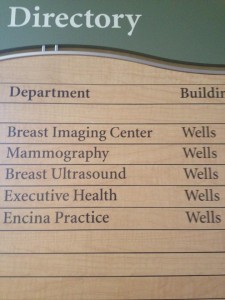November 17th marks World Prematurity Day, a day dedicated to help raise awareness about prematurity and the potential risks associated with pre-term birth. With underdeveloped organs and immature immune systems, babies born prior to 36 weeks can be especially prone to infections from seemingly harmless viruses like the common cold, the flu or RSV. Prematurity is the number one cause of neonatal deaths. Most parents are not well-informed when it comes to prematurity, in fact, a recent survey on prematurity awareness found that 3 in 10 mothers of preemies weren’t aware of the possibility of prematurity until they had their first child. Did you know that approximately 15 million babies are born prematurely each year? Half a million of those babies are born right here in the United States. That is a staggering number. Medical advances have allowed many premature babies to survive, when they once would not have had a chance at survival or living a “normal” life. Even so, prematurity puts babies at an increased risk for a wide range of health and developmental problems.
Prematurity disrupts a baby’s development in the womb, often stunting the growth of some of the body’s most critical organs. These babies are at an increased risk of serious medical complications and regularly face weeks or even months in the NICU. This often contributes to mothers feeling powerless, anxious and isolated. On November 17 – World Prematurity Day – we’re hoping to educate all expecting parents about the possibility of, and potential risks associated with, preterm births.
One of the health risks associated with premature birth is RSV. Because their immune systems and lungs aren’t fully developed, preemies are more likely to develop infections and are more susceptible to respiratory problems. In fact, 79% of preemie moms have a baby who was hospitalized due to a severe respiratory infection. Most people have never even heard of RSV. What exactly is it? RSV stands for respiratory syncytial [sin-sish-uhl] virus. RSV is a contagious viral disease that may infect a person’s lungs and breathing passages. RSV spreads rapidly among children, many children catch RSV by the time they are 2 years old. Most children will recover in 1 to 2 weeks, but even after recovery, infants and children can continue to spread the virus for 1 to 3 weeks. While most children recover without any difficulty, such is not the case for premature infants.
For premature infants or those with lung or heart problems, RSV disease can lead to serious lung infections and hospitalization. Babies born early have lungs that are smaller and less developed at birth than those of full-term babies. Premature birth interrupts the final stages of normal lung development. For babies born early, RSV could lead to serious lung infections, like pneumonia and/or bronchiolitis (swelling of the lower airways).
RSV is the leading cause of infant hospitalization, and severe RSV disease causes up to 10 times as many infant deaths each year as the flu. RSV is most prevalent during the winter months. The CDC has defined “RSV season” as beginning in November through March for most parts of the U.S. In addition to prematurity, common risk factors include low birth weight, certain lung or heart diseases, a family history of asthma and frequent contact with other children.
Prematurity and RSV in the U.S. Hispanic Community –The current rate of preterm births in the U.S. Hispanic community is 11.66 percent. Since 2006, the preterm rate has declined 5 percent for Hispanic infants. Data indicate that infants from U.S. Hispanic communities are at increased risk to develop severe RSV disease; while the exact reason for the increased risk is unknown, the increased prematurity rate is likely a contributing factor.Two-thirds of U.S. Hispanic mothers have never heard of RSV, and one in five U.S. Hispanic moms only becomes aware of RSV once their child has contracted the virus.
What are the symptoms of RSV? –Severe coughing, wheezing or rapid gasping breaths
· Blue color on the lips, mouth, or under the fingernails
· High fever and extreme fatigue
Prevention is Key-RSV is very contagious and can be spread easily through touching, sneezing and coughing. Since there’s no treatment for RSV, parents should take the following preventive steps to help protect their child.
· Ensure you, your family, and any visitors in your home wash their hands or use hand sanitizer
· Avoid large crowds and people who are or have been sick
· Never let anyone smoke near your baby
· Speak with your child’s doctor if he or she may be at high risk for RSV, as a preventive therapy may be available.
Prior to having my little one, I worked in a Pediatrician’s office. I was in charge of making sure all our preemies received preventive therapy. There is an antibody injection, (Palivizumab), available for preemies that meet specific criteria; it is given on a monthly basis, though out RSV season. If you have a premature infant, ask your pediatrician about preventive care. RSV can lead to other lung conditions, so it is very important to protect your baby from contracting it.
To learn more about RSV, please visit the RSV Protection Site, there is a lot of valuable information there. If you know someone with a premature infant, please share this post with them and let’s help get the word out about prematurity and RSV. Preemies can’t speak up for themselves-they need you to be their voice.
This post is compensated and in collaboration with Latina Bloggers Connect. The opinions expressed are my own.








